PostTime:11/7/2024
Teachers are like the lighthouse, enlightening all the succeeding generations. They devoted themselves to teaching and research, winning many students' respect and love. The series of interviews with teachers will share their insights on education so that more people can get close to GTIIT's classes and teachers and know about its characteristics and educational philosophy.
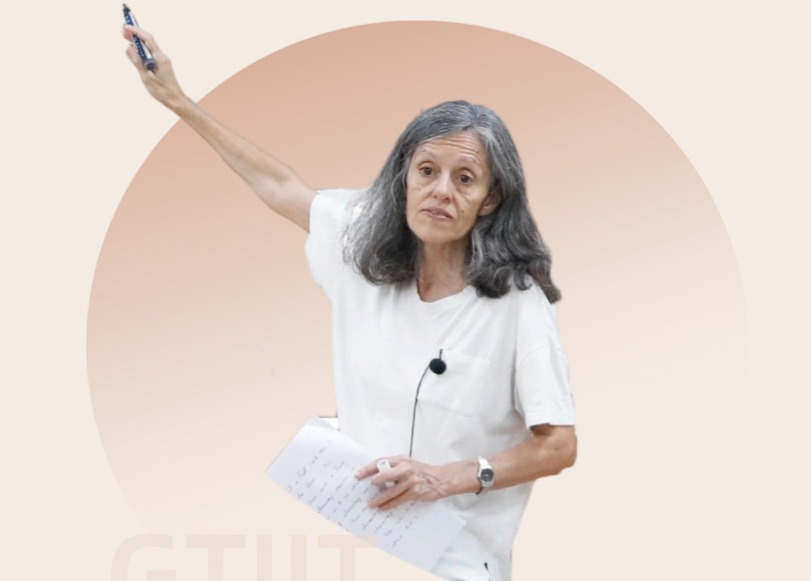
Andrea Leonor Solotar
Professor of Mathematics with Computer Science
She is a renowned scientist, deeply engaged in the study of algebra, and was awarded the "Mathematics Consecration Prize" by the Argentina National Academy of Exact, Physical and Natural Sciences (ANCEFN) for her outstanding achievements. She is also a dedicated educator, giving her answer to the "equation" of education with lifelong love and commitment.
Math deserves lifelong pursuit
It’s natural for Andrea to be drawn to mathematics. "Mathematics is a very structured way of thinking, very organized. I like it because it suits my way of thinking." Her pursuit of the beauty of mathematics began in her youth and was deepened during her undergraduate, master's, and doctoral studies. Since university in 1978, the subject has been her friend aside for 46 years.
"If you don't teach, being a mathematician sometimes is very lonely," she said, "you can be beat inside your own thoughts a lot." In the 4th year of her undergraduate studies, she started teaching as a student assistant, walking into a broader world of mathematics. Since then, the seed of education was planted inside her. In 2020, she came to GTIIT, becoming a wise and trusted mentor to the students here.
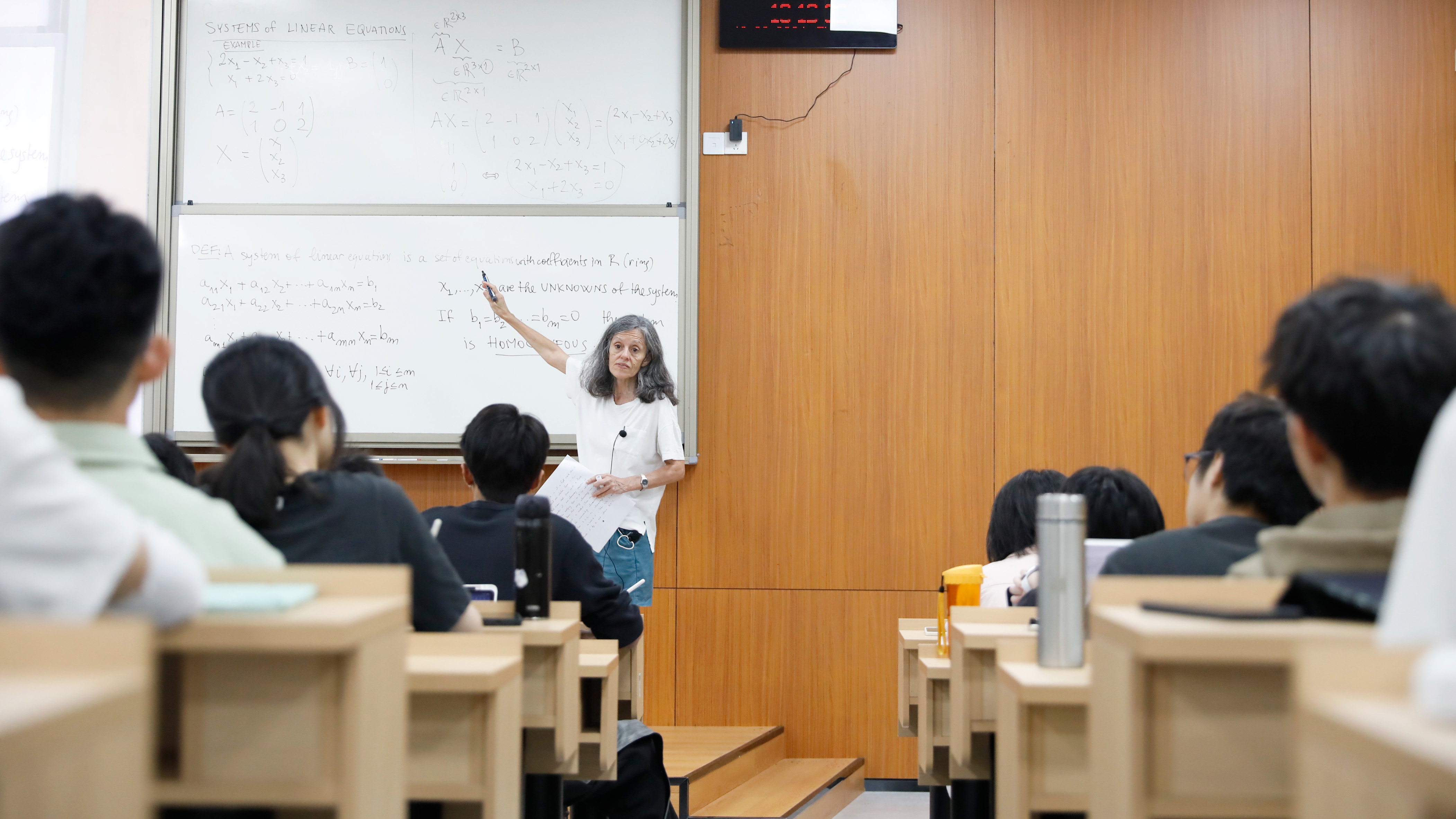
The slender and soft-spoken scholar stood against the blackboard, with sharp eyes, lecturing over a hundred students in the classroom. Over the years, Andrea firmly believes "solving problems" is the core of mathematics learning. "I think the student really knows the subject when the student is able to solve problems." She always hopes that they enjoy the joy of argumentation, jump out of the mindset of "study by heart" and see the broader beauty of mathematics. "I wouldn't like mathematics if it was just a collection of formulas," she smiled.
In Andrea’s understanding, solving problems is a bit like cooking, but there is no "recipe for everything". "Students need to imagine possible different solutions to a problem, to let their imagination work." In class, in textbooks, and in exams, she integrates this approach into various sides of teaching, encouraging students to solve problems using different proof methods, unlocking their potential for problem analysis, solving, and applications.

Therefore, asking questions becomes a priority in her teaching. "We encourage students to ask questions as soon as there is something they don't understand," Andrea explained, "If you wait until the end of the lecture, you will miss everything that is related to this." Generally, groups with no more than 20 students provide an excellent space for her to lead interactions, and “push” students to raise their hands. Guidance like this has brought delightful results: "Even you can feel the big difference between first year students and second year students. They are more used to asking questions, to talking to teachers." Besides, the training is a process of mutual learning, "You learn from the doubts that students have. There are some doubts that are related to the language and the language structure, language influences the student's way of thinking. This is very interesting."
Math requires a shift in thinking
When hearing others mention "it’s not easy to learn mathematics at GTIIT," Andrea said, "Mathematics programs are always hard for students. It's not only here. It's everywhere." In her view, compared to other subjects, mathematics is more abstract and "concrete" steps or instructions may be lacking. "Sometimes you have a problem, and you don't even know how to start thinking about it — when they start here, it is more difficult because they have problems with English." Breaking through such problems depends more on how the students organize their own thinking, which is not easily acquired.
"The problem is that the mathematics they learn at high school is very different from mathematics at the university," she observed this discrepancy in every country, "The mathematics students learn at school is usually just a collection of recipes of how to solve problems. And when they come to the university to study sciences, they have to think in a different way and start asking why things are like this." This results in some misunderstandings in the choice of majors, "When a student chooses Mathematics, sometimes they really don't know what they are choosing."

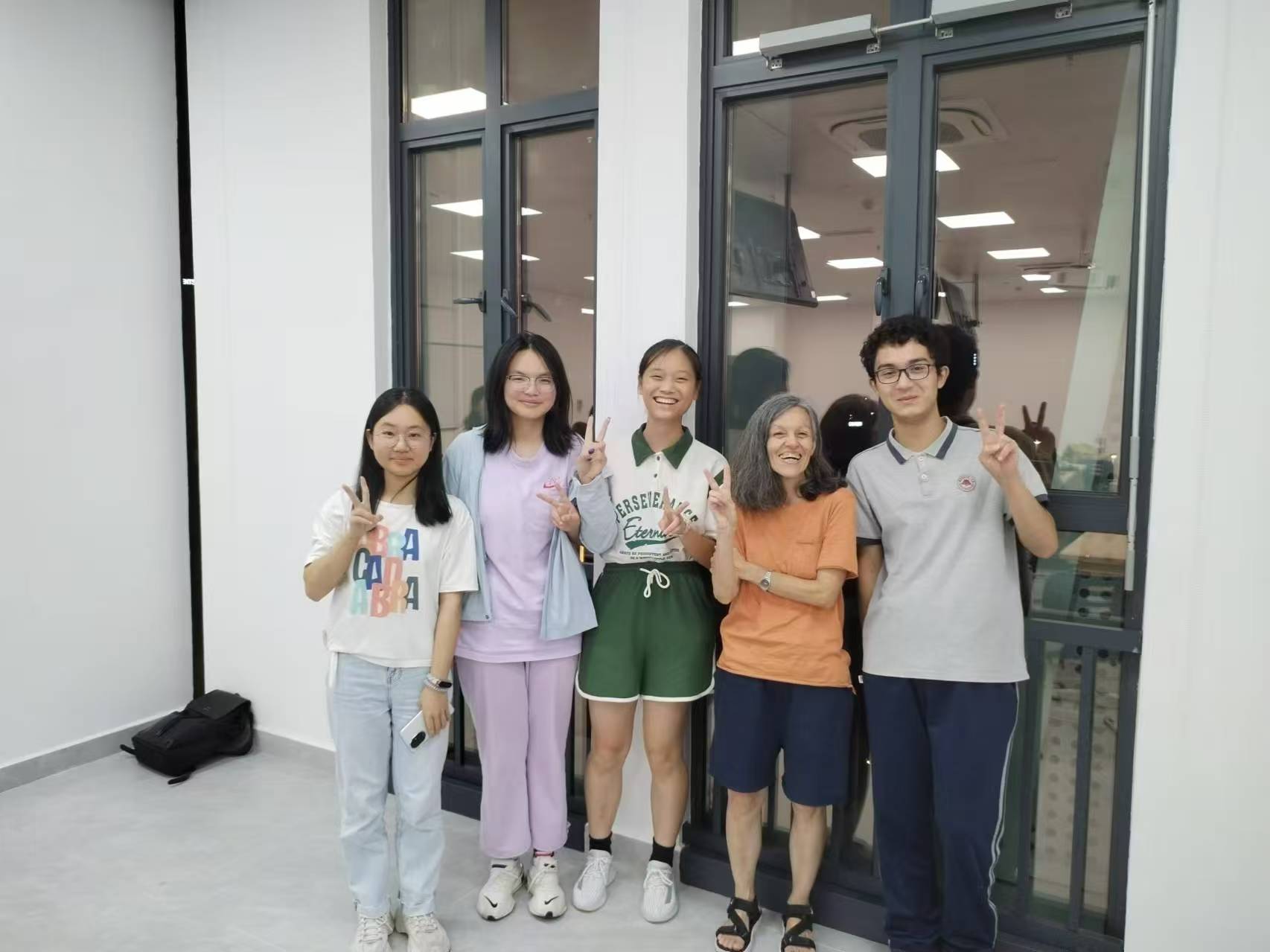
Therefore, for first-year students just stepping into the university, the first step to learn mathematics is to "re-understand it". Whether it's digging into students' thought processes during office hours or engaging in extensive discussions with a "question-first" approach during tutorials, the training of mathematical thinking runs through Andrea's teaching. She hopes students dare to understand abstraction and conduct curiosity-driven research based on evidence and logic. And she often thinks about better ways of curriculum design, such as adding more "tutorials" to enhance teacher-student interaction, or "focusing on some particular subjects that are helpful for changing the mental procedure that they need to change", to help the students "do this jump from high school to university."
If, after knowing the "truth" of mathematics, the students remain passionate about it, then "it's just working and working and not being discouraged," Andrea said, "Effort is more important than talent. If you keep working, you will be able to succeed anyway." For students who genuinely "dislike mathematics" and "want to quit", she will try to help them find what they like. "Maybe you lose them as future mathematicians, but you gain them as a future chemist," she added, "the important thing is to find what you really want to do."
Beyond math, there is more.
Besides teaching, Andrea also stands as a facilitator for GT students in their pursuit of further education. From schools, majors, motivation letters, or recommendation letters, when students knock on her office door with a bunch of queries, she always engages in detailed discussions with them, offering enlightening insights for their decisions. This process, as she noted, is more of "working with the students" than simply "help". "Every detail has to be polished, so that they get a good result for their applications."
During the interview, words like "asking questions", "solving problems", "interest", "curious" and "imagination" frequently came out of her mouth. Not only in mathematics, but such enthusiasm can also be found in her pursuit of flourishing life experiences.
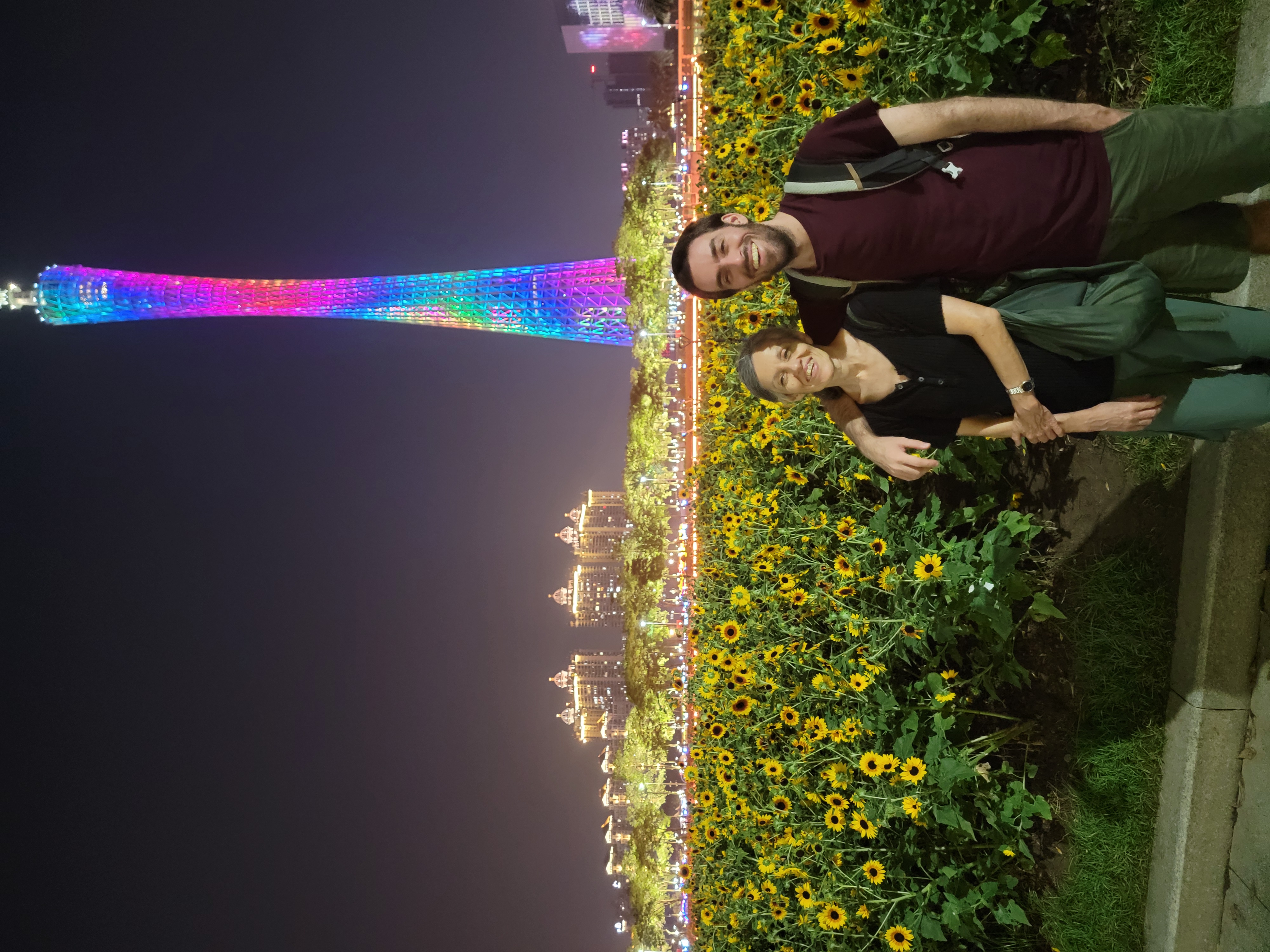
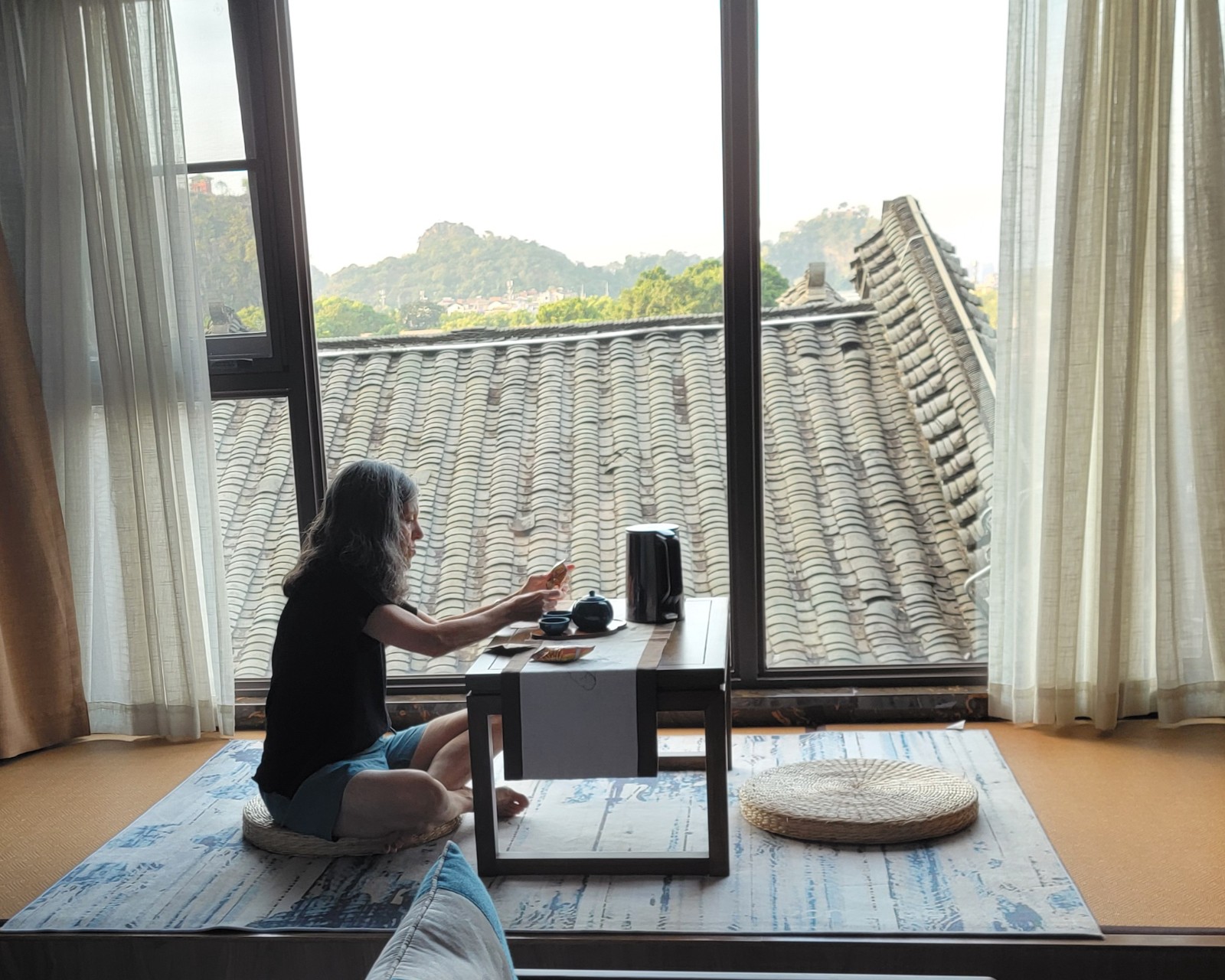
Apart from teaching two courses each semester, she also fills her own “class schedule” with a variety of activities: working on her research, preparing talks, discussing mathematics with PhD students and with former PhD students, attending conferences, pursuing her task in the Commission for Developing Countries of the International Mathematical Union, learning Chinese, and yoga and walking whenever possible. Connections with others are a fantastic way to "recharge" herself. "GTIIT is a very nice community," she smiled, "the conditions for working are very good, the students are nice, and there are many interesting colleagues."
Over the past four years in China, she has fully explored the culture on this land. She likes "mixing" Chaoshan food with other cuisines, and has visited cities like Beijing, Shanghai, Xiamen, and Xi'an. During the recent Mid-Autumn Festival, she embarked on a "Guilin tour" with colleagues, walking under the moon in the palm of rivers and mountains, getting closer to the abundant beauty of Chinese culture.
In the unfolding curriculums, Andrea will lead more students, thinking, exploring, and creating, towards the vast ocean of mathematics.
Text/Photos: GTIIT News & Public Affairs
© GUANGDONG TECHNION-ISRAEL INSTITUTE OF TECHNOLOGY | 粤ICP备17036470号
